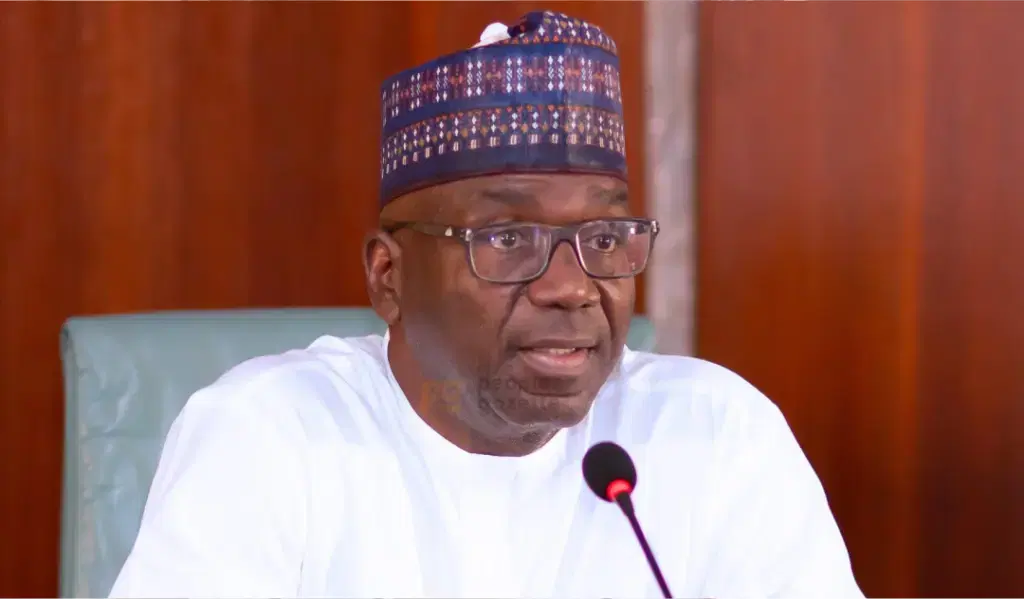Over 200,000 qualified teachers needed, only 27% of Primary 3 pupils have grade-level reading skills
By Henry Umoru
ABUJA – The 36 state governors under the umbrella of the Nigeria Governors’ Forum (NGF) have pledged to work closely with the Federal Government to address the country’s worsening education crisis, marked by the high number of out-of-school children and poor foundational learning outcomes.
Speaking on Thursday at a one-day State-Level Workshop on Foundational Learning and Out-of-School Children in Abuja, NGF Chairman and Kwara State Governor, Abdulrahman Abdulrazaq, stressed the urgency of the situation.
Abdulrazaq, represented by the NGF’s Head of Education Department, Dr. Leo Ebenezer, revealed that only 27% of Primary 3 pupils in Nigeria have acquired adequate reading skills for their grade level. He also lamented the critical shortage of teachers, noting that over 200,000 qualified teachers are required across the 36 states and FCT, while 27% of those currently teaching at the basic level are unqualified.
The workshop, organised by the NGF in collaboration with the Federal Ministry of Education, Universal Basic Education Commission (UBEC), the Committee of States’ Commissioners for Education, and education reform group NewGlobe, focused on bridging learning gaps and reintegrating out-of-school children.
Overloaded Curriculum, Poor Learning Outcomes
Minister of State for Education, Dr. Suwaiba Ahmad, disclosed that only 60% of Universal Basic Education (UBE) funds have been utilised, and lamented the excessive academic burden on pupils. She said primary school pupils are overloaded with up to 12 subjects, noting that the Federal Government plans to reduce subjects to seven for Primary 1–3 to enhance learning outcomes.
She warned that without strong support from the states, federal efforts to reform the education sector would yield limited results.
Foundational Learning in Crisis
Governor Abdulrazaq stated that the basic education system across the subnational levels is significantly underfunded, with large class sizes (an average ratio of 1 teacher to 55 students), inadequate teaching materials, weak monitoring mechanisms, and low community engagement contributing to the crisis.
“Low public spending on foundational learning, limited access to quality teaching resources, and poor awareness among families have worsened the situation,” he said.
The governor cited alarming statistics: Only 49% of children in school demonstrate basic literacy skills,55% have basic numeracy proficiency, Nigeria has a 26% out-of-school rate among primary school-aged children and National completion rates are just 55% at the primary level and 39% at secondary level.
These gaps, he noted, have contributed to Nigeria’s poor Human Development Index (HDI) score of 0.539, reflecting the nation’s weak performance in education.
NewGlobe: It’s a Systemic Emergency
NewGlobe Vice President of Policy and Partnerships, Ifeyinwa Ugochukwu, described the situation as a “system-wide emergency,” noting that even children who attend school are not learning.
“Multiple assessments across states show that even Primary 6 pupils struggle with foundational literacy and numeracy. Many children leave school without being able to read or do basic math,” she said.
Ugochukwu called for the deployment of real-time data systems to track teacher performance, identify learning gaps, and enable evidence-based decision-making. She urged states to invest in technology-enabled “smart schools” with solar power and low-data software for remote monitoring.
UBEC: Time for Long-Term Reforms
Executive Secretary of UBEC, Dr. Aisha Garba, described the crisis as one that threatens national development.
“Our education system continues to face systemic challenges in access, quality, and learning outcomes. Millions of children remain out of school, and many who are enrolled are not learning,” she said.
Garba emphasized that the HOPE-EDU Project—a $552 million initiative funded by the Federal Government, World Bank, and Global Partnership for Education—is aimed at strengthening systems, supporting states with technical assistance, and enhancing foundational learning outcomes.
She urged states to scale successful reforms, ensure policy alignment, and commit to systemic, long-term solutions rather than quick fixes.
“Our goal is clear: every child in Nigeria must be in school and learning. Achieving this requires courage, collaboration, and long-term commitment,” she said.
The workshop ended with a renewed pledge by stakeholders to prioritise foundational learning and reduce Nigeria’s out-of-school population through strategic, data-driven reforms and stronger state-federal partnerships.
The post Governors move to tackle Nigeria’s education crisis appeared first on Vanguard News.

